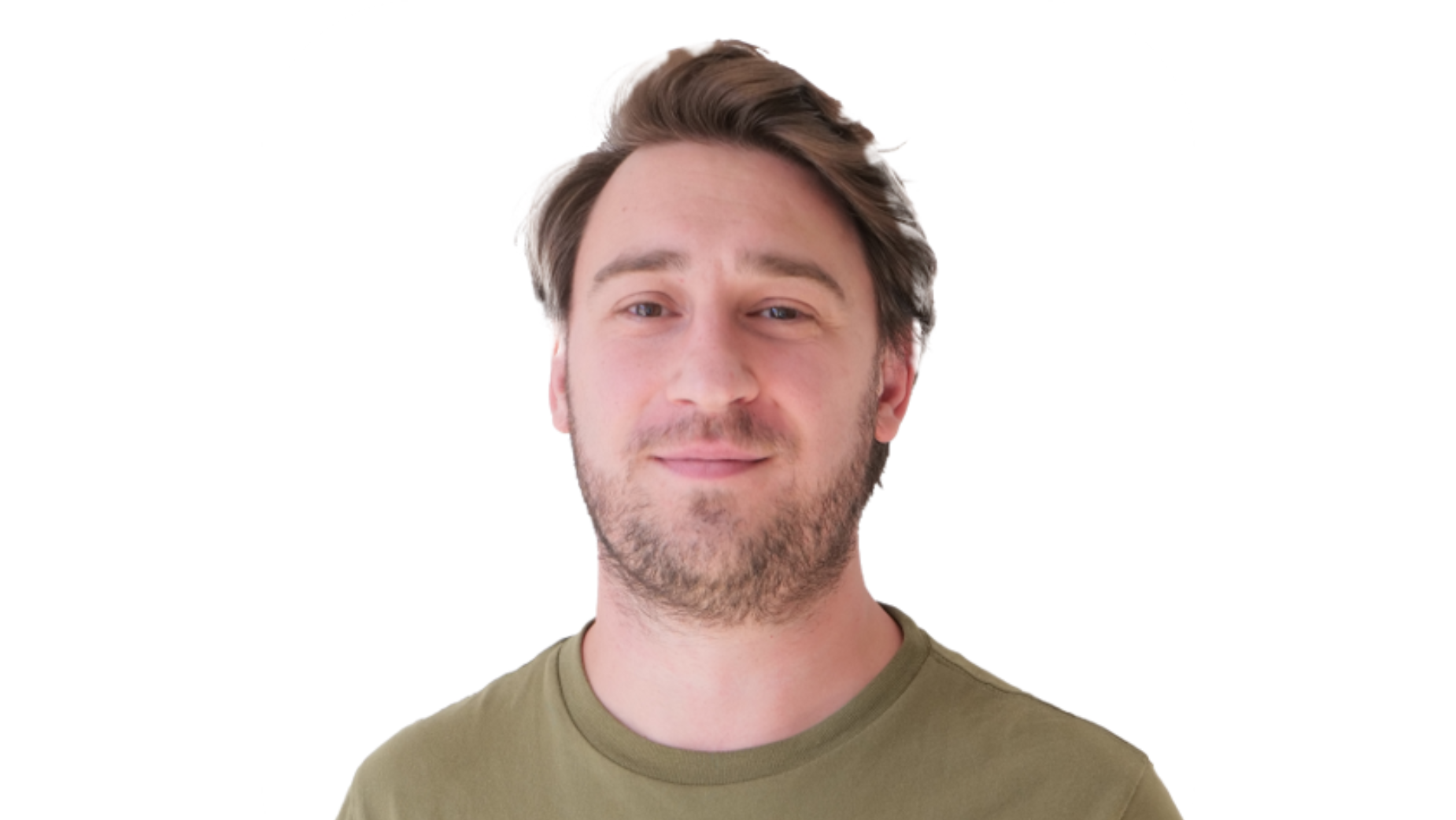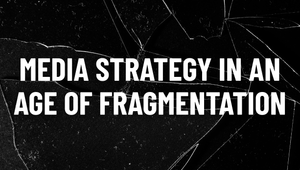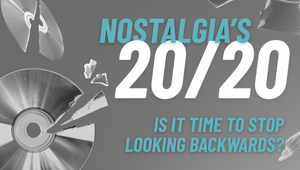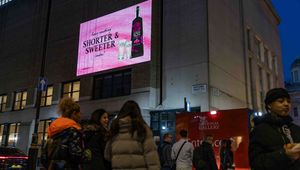
Media Matters: Oliver Clarke on Inescapable Accountability

Oliver Clarke is the head of planning at Bountiful Cow, where his primary ambition is to make the agency famous for its Relative Advantage proposition. With 12 years of experience in media planning and strategy across a variety of sectors such as retail, travel, automotive, and FMCG, he has always worked at indies and loves the planning autonomy and creative freedom that these environments provide.
LBB> What was it about the world of advertising media that pulled you in? What did you do before you got into media?
Oliver> Before I worked in media, I had a Dr. Jekyll and Mr. Hyde lifestyle; by day I worked for the NHS and by night I was a drum and bass DJ. I was totally useless in both. But what I did know back then was that I was fascinated by people – how they thought, how they acted (and how those two things were usually at total odds with one another). I wanted to go into an industry where people were the central focus, and I found that media and advertising was a great industry in understanding behaviour.
LBB> Over the course of your career, what have been the most significant changes you’ve seen in the media side of the industry?
Oliver> There’s been loads of change, but the major one that springs to my mind is the inescapable accountability of media, thanks to a proliferation of measurement tools we now have access to. This is both a blessing and a curse. While these tools help demonstrate campaign effectiveness and enable small, in-channel optimisations during planning, they also add pressure to deliver measurable results.
The flip side of this is that it removes any sort of appetite for risk, and I hope the industry starts to fight against the safety blanket provided by projects like Media Mix Modeling. There are plenty of new studies that prove that playing it safe isn’t safe, and that it actually pays to be different.
Our agency proposition really speaks to this; Relative Advantage is all about defying category norms to create standout and distinction. Crucially, we then test and measure this approach to prove that acting differently works—and scale up from there. I hope the industry brings back some much-needed fun and entertainment that people really want from brands.
LBB> What was your first job in the media industry and give us a taste of the path that your career has been on?
Oliver> I began my media career working on a collection of small regional clients in the travel and education sectors, booking lots of regional press campaigns. It was great. I gained a nuanced understanding of the diverse regions across the country. In fact, I’d confidently take on anyone in a quiz to name regional press titles around the UK!
Since then, I’ve worked in planning roles at a handful of independent agencies, drawn by the freedom and autonomy that only indies offer.
LBB> In more recent years, which projects or clients have proven to be the most stimulating and satisfying to work on and why?
Oliver> I think there is value in working across as many sectors as you possibly can, so you can start to build up knowledge of how different types of businesses work, what makes them tick, and what they’re looking for in their campaigns. For me, I particularly like the slightly mad world of retail – it’s so fast-paced and relentless. I don’t know why that appeals to me, but it does!
LBB> In media, an understanding of human behaviour is so important - what are some of the most interesting changes you’re seeing in terms of how we behave with and interact with media?
Oliver> On a fundamental level, human behaviour hasn't changed much. People still seek entertainment and distraction in their downtime, and they want to feel moved. They also love connecting with others and sharing experiences—whether that's watching content together or separately, and then discussing it afterwards.
What has shifted, however, is the sheer abundance of content and platforms available to consume it. The rise of streaming, on-demand services, mobile, gaming, and social media has created more options than ever before. While these platforms may be new, they provide the same emotional experiences that people have sought for decades—whether 30, 40, or even 100 years ago.
LBB> Brand safety is more important than ever and consumers and campaign groups are increasingly holding brands to account for the media they choose to spend on - what are your thoughts on this phenomenon and how are you and your teams navigating it?
Oliver> Brand safety is of course important, but I think it’s gone too far in terms of keyword filtering on quality newsbrand sites. This was thrown into stark relief during the Euros when Reach reported that 50% of their excellent, premium newsbrand content was shut off by AI ad blocking, because of words like “attack” and “shoot”.
That’s why we launched ‘Relative Advantage: Unblocked’ in October. It’s a programmatic tool designed to circumvent brand safety tech and buys impressions deemed as ‘brand unsafe’ from quality publishers. We developed it with Ozone, to solve the industry-wide issue whereby brand safety technology has overreached and now penalises quality publishers, and quality content.
As an agency that champions and grows challenger brands, we use Relative Advantage as a growth framework, to find spaces the competition neglect. So, we see overzealous brand safety measures in the programmatic world as the perfect Relative Advantage opportunity, where brands are ignoring perfectly good platforms and environments.
We believe that running paid media campaigns without brand safety filters can boost engagement on premium news content. We stand by newspaper editors—quality publishers are brand safe. To prove this, we’re launching a research programme comparing filtered and unfiltered inventory on premium UK news sites and will be announcing the results at an event in January.
LBB> What do you think are the most pertinent debates happening in the media field right now?
Oliver> My debate I’m most engaged in at the moment is regarding retail media and where it sits as part of the plan. Is it even advertising? Should it come from a different budget e.g. distribution? Is it actually a new retail tax that clients are being coerced into using? It’s a really interesting subject – how physically (and virtually) close do you need to get to a specific point before it stops being advertising and starts being POS?
LBB> Decoupling, recoupling, creative agencies trying to build media functions, media agencies creating content studios… what’s your take on the relationship between creative and media and where do you think it’s going?
Oliver> At Bountiful Cow, we’ve done exactly that – we’re full service. I love the combination, working in harmony with our head of brand strategy and creative production team to quite literally get on the same page from the get-go. It just makes sense to me.
LBB> The wider industry has become really obsessed with artificial intelligence, but media has been using variations of AI and algorithmic automation for some time - what’s your take on the longer term influence of AI on media? Are there any aspects of media planning that you think AI could still have a big impact on?
Oliver> I agree – AI has been knocking about for a long time, especially in performance marketing. Longer term, I think it’s a brilliant efficiency tool for an agency, to take away some of the mundane and repetitive (but hugely laborious and time consuming) tasks that planners, especially junior ones, have to put up with. It should help the agency environment become more fun and more productive, and much more creative. Personally, I can’t wait to become a cyborg that has direct access to the hive mind.
LBB> More attention is being paid to the environmental impact of various media types, particularly in digital - where do you think the industry is in terms of tracking that impact and minimising it?
Oliver> It’s a long road. There are some excellent initiatives in place like Ad Net Zero, but the industry is so vast that it’s going to take a long time to have a single point of view on how to minimise the harm that is caused. At Bountiful Cow we’re signed up to Ad Net Zero and all our planners use the carbon calculator, and we’re mindful of certain media channels and their negative impact across the world.
LBB> As an industry, we’re obsessed with the new - and for good reason, it’s often where the money lies! But are there any more traditional forms of media that you think we’re sleeping on a bit or that you think still make a big impact when it comes to connecting with consumers?
Oliver> Of course, most marketers and agency people have a tendency to be magpies, attracted to the latest shiny thing. But projects like 'Profit Ability 2' from Thinkbox really help to ground the industry back in reality – traditional media most definitely has a place on most plans.
There are still some moments on live TV that still are unmatched when it comes to a large chunk of the population all pointing the same way at the same time, and I think broadcasters know this and will start thinking about how they can make more of these moments. Whether it’s a TV series that is available to stream on demand – except for the last episode, which you have to watch live on a certain day for example, broadcasters should be smart in engineering more shared media moments.
OOH as a broadcast medium still really delivers on audience, fame, and can move the needle in terms of brand trust and consideration. Not only that, but it is also one of the few mediums to deliver younger audiences in great numbers.
Ultimately, every media plan should start from a position of channel neutrality, with the audience as the guiding light.
That’s why we oppose principal-based media, where agencies buy media at one price and resell it to clients at a higher, undisclosed price. This practice undermines the true craft of planning, restricting investment to channels that deliver the highest margins for agencies rather than the best platforms for advertisers. That’s why I choose to work for an agile, independent agency, where transparency is central to everything we do, and independent thought drives every decision.
LBB> Who are your media heroes and why? And what sort of media do you enjoy?
Oliver> Lots of people spring to mind and they change on a weekly basis. But right now, I’m really enjoying reading and listening to Nick Asbury – he has some pointy comments on purpose marketing and his book 'The Road to Hell' is cracking, definitely worth a read. I also am a bit of a (Dr) Grace Kite fanboy; I will listen to everything she does.
Personally, when it comes to media I enjoy, I genuinely love the feeling of owning physical versions of media that I love and cherish. I’m one of those geeky book worms who likes to buy physical copies of books (that then take up too much space at home). I also love DVDs for the same reason; streaming services just don’t feel as satisfying to me as actually owning the product!















